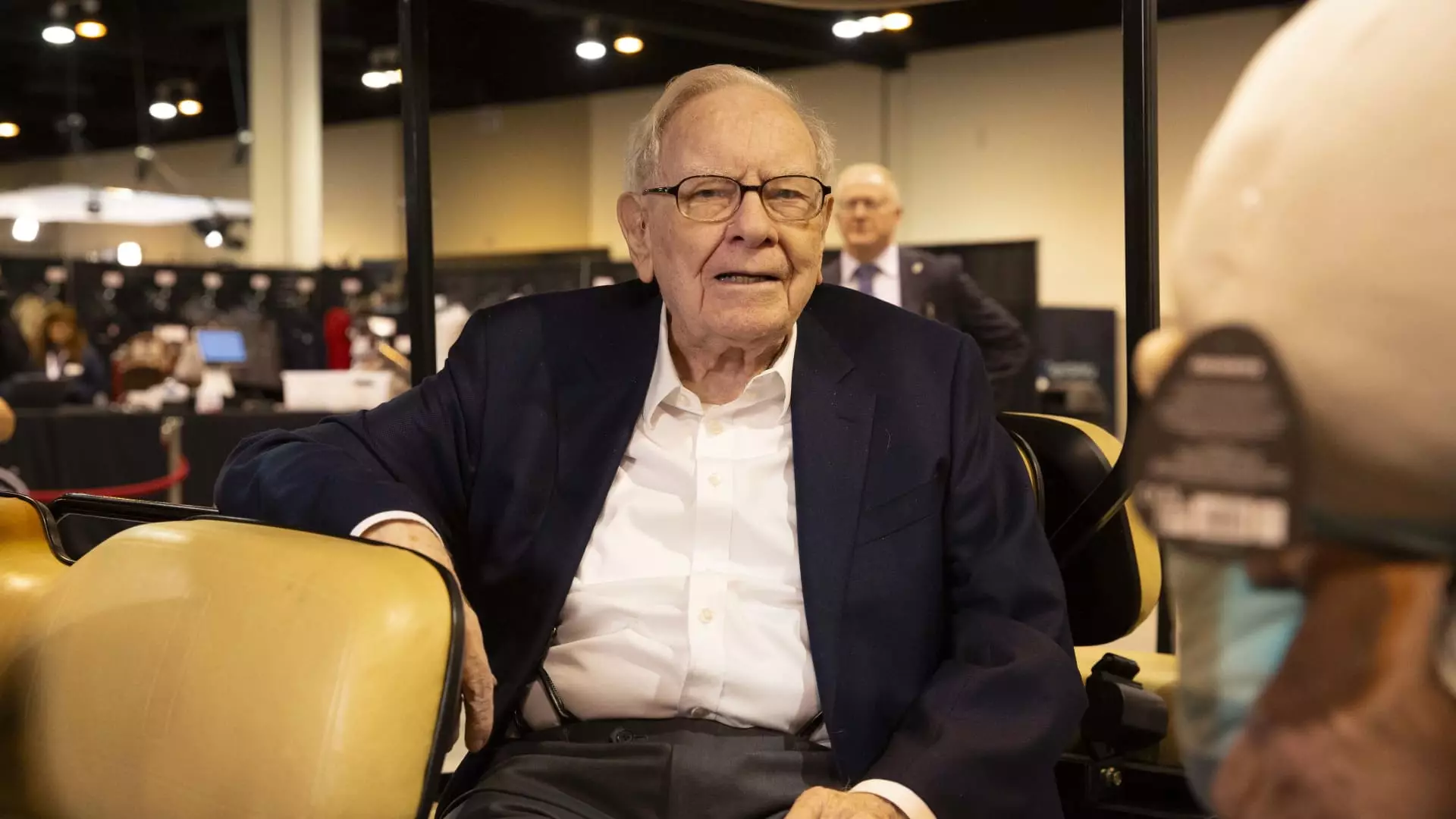In a year marked by economic turbulence and uncertainty, Warren Buffett’s Berkshire Hathaway shines as a bastion of resilience. With its stock price soaring to a 17% return year-to-date, Berkshire defies the prevailing trend of decline seen in big-name stocks. The S&P 500 has shrunk by nearly 6%, but Berkshire’s performance not only staves off negative momentum but positions it among the top 10% of large-cap stocks in the U.S. This showcases not just Buffett’s acumen as an investor but perhaps also serves as a critique of the inefficient markets that fall prey to speculation and short-term fears.
Buffett’s reputation as the “Oracle of Omaha” is not simply a moniker; his humble, steady approach seen in his latest strategies contrasts sharply with the noise of the larger market. As we approach the much-anticipated Berkshire Hathaway shareholder meeting, the spotlight on Buffett intensifies, further enhancing his financial philosophy.
The Rise of the VistaShares Target 15 ETF
The timing for the nascent VistaShares Target 15 Berkshire Select Income ETF could not be better. With Berkshire holding 10.6% of this fund, it epitomizes a fusion of Buffett’s investment strategy with a more immediate income-generating approach. This innovation comes amid a widespread disconnect between stock performance and dividend payouts—a factor that has frustrated some investors looking for income. As CEO Adam Patti states, this ETF mirrors a portfolio created by the world’s most successful investor, blending long-term growth with immediate financial benefits.
Many investors are keen to mirror Buffett’s investment rhythm but have yearned for dividends—an expectation that the classic Berkshire model doesn’t fulfill. By integrating call options and aiming for a 15% annual yield, the ETF offers a novel approach that aligns with modern market realities while maintaining homage to Buffett’s long-term vision.
A Lesson in Market Volatility
The volatility of the current market environment underscores the importance of stable investments. Since Donald Trump’s inauguration, the S&P 500 observed extensive fluctuations, reflecting heightened anxiety among investors. Buffett’s strategy, however, which emphasizes quality and efficiency over relentless growth, stands as a critique of the momentum-driven market behaviors seen in today’s landscape.
It is worth acknowledging the lessons we can derive from Buffett’s approach during these turbulent times. Holding cash reserves, trimming stakes in certain big stocks, and positioning for a cautious market ahead demonstrates an exceptional astuteness absent in many contemporary investment strategies. This creates a potential roadmap for investors to navigate through uncertainty.
The Dividend Dilemma and Emerging Opportunities
Buffett’s staunch refusal to pay dividends serves as a focal point in the broader discussion about income strategies. While this may displease some shareholders who hunger for immediate returns, it raises an important question: do we prioritize short-term benefits or long-term capital appreciation? Many seasoned investors acknowledge the merit of reinvesting dividends into more equities, but not all shareholders share this perspective.
The lack of dividends has historically been a significant grievance for those who view stock investments through the lens of generating income. Herein lies the brilliance of the VistaShares ETF—by incorporating an income strategy that capitalizes on stock performance while providing monthly distributions, it effectively reconciles this rift.
The New Age of Investment
This dynamic ETF reflects a broader trend in investing; as markets grapple with outsized fluctuations, there is a rising demand for hybrid models that balance the steady hand of fundamental investing with the pressing need for liquidity. Investors are increasingly seeking refuge in diversified instruments that offer both growth potential and income capabilities.
In the face of uncertainty, Berkshire Hathaway’s stellar performance challenges not just fellow corporations but also investors who cling to short-term gains. It compels a re-evaluation of what it means to invest wisely in today’s economic climate. By adopting a mindset that prioritizes intentional strategy over mere momentum, we arm ourselves against the disordered whims of the market. Amidst the chaos, Buffett and Berkshire teach us that true investment wisdom requires patience, adaptability, and a keen understanding of the landscape.

Leave a Reply